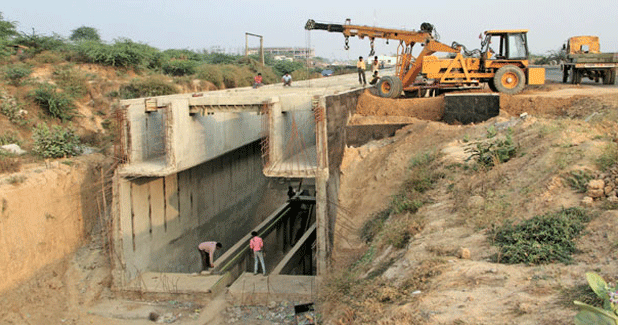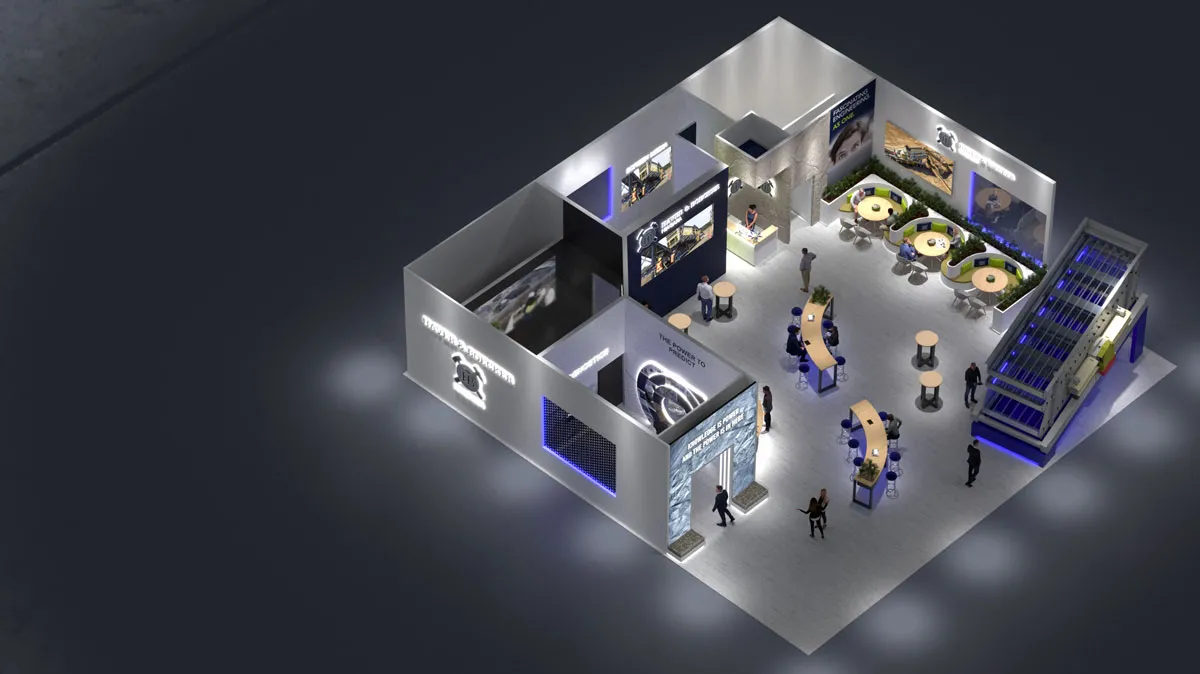RAMAKANT JHA charts out the path of transformation for Gift City.
Everyone recognises India as a great growth story. However, the infrastructure bottlenecks at times limit the country´s growth potential. Identifying infrastructure as a holdup, the Government of Gujarat is setting up India´s first self-sustaining smart city with the focus to develop the services sector; namely financial services, IT/ITes and BPO/KPO, which would complement the already existent strong manufacturing sector. This has led to the conceptualisation of the Gujarat International Finance Tec-City (GIFT City). GIFT is conceptualised as a global financial and IT services hub, a first-of-its-kind in India, designed to be at or above par with globally benchmarked financial centres such as Shinjuku-Tokyo, Lujiazui-Shanghai, La Defense-Paris and London Dockyards.
The project is spread over three phases of four years each, overlapping the other. The first phase, which involves the allotment for 13 million sq ft of built-up area, is expected to be completed by 2016. Of the total 13 million sq ft planned, GIFT has already allotted space for 12.2 million sq ft of built-up area, thereby showing the pace with which this project is developing.
GIFT City has seen substantial changes in pace and processes as it has garnered attention as the first smart city under development. The new government also announced the creation of 100 smart cities with GIFT City as a benchmark. The most important part of the project is the use of technology that would bring a paradigm shift in the way any city is conceived. Through implementation of Information and Communication Technology (ICT), the global finance hub has acquired all the features that a smart city has.
Scaling it up
GIFT spreads across 886 acre and is recognised as the country´s first International Financial Services Centre (IFSC) by the Government of India.
The project is already gearing up to provide 1 million jobs in the next decade and transform the financial services industry in the country.
Despite facing several roadblocks, the project is now a success story in mega infrastructure. It would generate around 500,000 direct and an equal number of indirect jobs requiring approximately 84 million sq ft of real estate office and residential space. Current plans of developing 62 million sq ft of built-up area should potentially stack up against the demand.
Further, GIFT facilitates multi-services SEZ of 261 acre and Domestic Finance Centre and associated social infrastructure (on 625 acre). The SEZ is divided into two parts - 131 acre for processing area and 130 acre for non-processing area. It is supported by state-of-the-art internal infrastructure encompassing all basic urban infrastructure elements along with an excellent external connectivity by roads and proposed metro and BRTS.
Infrastructure plays a vital role when it comes to the development of a self-sustainable smart city. As a planned city, GIFT aims to create leading-edge infrastructure, services and platforms and offer financial services and IT/ITes enterprises a significant competitive advantage to operate regionally and globally. It provides various infrastructure facilities, which are already commissioned and are in an advanced stage of completion such as water treatment plant, sewage treatment plant, roads, power, ICT, district cooling system, automated waste collection system, utility tunnel and multi-level car parking. Many of the infrastructure facilities at GIFT are being introduced for the first time in India.
The pace of things
Any smart city or greenfield project of such a large scale takes at least 15 years before it is fully operational. However, such projects can be implemented only if there is a clear vision of the future demand. India has seen many large projects either fail or go worthless due to cost and time over runs. For GIFT City, the vision of Honorable Prime Minister Narendra Modi - to develop India´s first global financial hub backed by robust demand in the financial services and IT/ITes - has put the development process on fast track.
We believe the guidelines on IFSC is likely to speed up the process of occupancy as international companies in financial services industry are awaiting clarity on the incentives they would receive and benefits they will probably derive on setting up their operations here. It would also encourage development of other such centres in the country over the next decade.
Planning the processes
Given the size and scale of the project and the pace at which it is required to be completed to become worthwhile, it was essential to follow processes to ensure smooth operations. Since the project involves many stakeholders and partners, processes would ensure that every stakeholder is aware of their work.
The processes are also essential as most part of the project requires the presence of multiple stakeholders.
Considering the global status and recognition to be achieved by GIFT, the project would inherit some unique identities by way of its planning and scalability factors. GIFT being a greenfield development provides a unique opportunity to introduce cutting edge technology. New applications will emerge to take advantage of the cheap and abundant bandwidth that will be available.
GIFT will feature intelligent buildings that have a high level of automation and control to reduce operating costs, deliver energy efficiencies and a world-class working environment through monitoring and control of factors such as heating, ventilation and air conditioning (HVAC), indoor air quality (IAQ), power and managed energy, managed lighting, life safety detection and notification system, and entry control. This entire ICT is not possible without processes.
GIFT Urban Development Authority (GIFTUDA) is constituted by the Gujarat Government as a new urban development authority dedicated exclusively to GIFT. It is constituted for well-planned urban development of the area and acts as an single window for all approvals and clearances for the development at GIFT City. The GIFT Notified Committee, constituted by the Gujarat Government for better management at city level, takes care of all the municipal functions of the city.
Currently, we have already actioned the above mentioned features for towers that are operational and occupied. With Phase-I nearing completion and the next phase expected to commence shortly, we believe the processes, too, will speed up and harmonise with the development of the overall project.
GIFT is going to be a game changer in the story of India´s urbanisation. It is going to usher in an entirely new paradigm of planned urban development in the country û one that is friendly towards the residents, beneficial to businesses and environment-friendly.
¨The vision of Gujarat would be incomplete without capitalising on the in-house financial business acumen. To tie-up with technology, to create a hub complete with infrastructure, to meet the needs of modern Gujarat, modern India and to create a space in the global financial hub...that is my dream.¨
- Shri Narendra Modi, Hon´ble Prime Minister of India
About the Author:
RK Jha, Managing Director & Group CEO, Gujarat International Finance Tec-City Co Ltd (GIFT), (a JV of Government of Gujarat (GoG) and Infrastructure Leasing & Financial Services Ltd (IL&FS), for developing an International Financial Services hub in Gandhinagar, Gujarat) has over 44 years of professional experience in planning, design, project development, execution (including financing), research and development of large projects covering town planning, transportation planning, detailed planning and design of integrated urban infrastructure as well as execution of the projects.




















